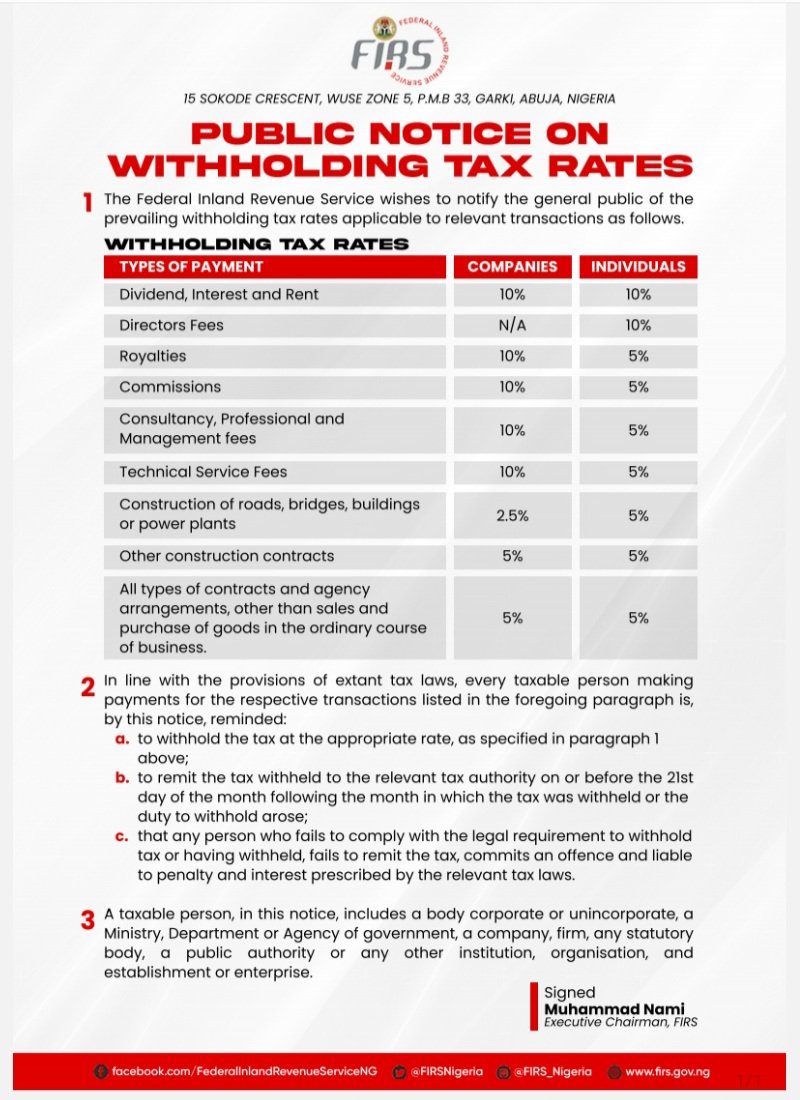
The Federal Government has formally increased Value Added Tax (VAT) from 5 percent to 7.5 percent only for big investors in the country’s economy.
In the draft bill on VAT which President Muhammadu Buhari presented today, October 8, along with the 2020 national budget, the threshold for VAT registration was raised to N25 million in turnover per annum, “such that the revenue authorities can focus their compliance efforts on larger businesses thereby bringing relief for our Micro, Small and Medium-sized businesses.
The President said that the 2020 Appropriation Bill is based on this new VAT rate.
“The additional revenues will be used to fund health, education and infrastructure programmes. As the States and Local Governments are allocated 85% of all VAT revenues, we expect to see greater quality and efficiency in their spending in these areas as well.”
The President assured that VAT Act had already exempted pharmaceuticals, educational items, and basic commodities, “which exemptions we are expanding under the Finance Bill, 2019. Specifically, Section 46 of the Finance Bill, 2019 expands the exempt items to include brown and white bread; Cereals including maize, rice, wheat, millet, barley and sorghum; Fish of all kinds; Flour and starch meals; Fruits, nuts, pulses and vegetables of various kinds; Roots such as yam, cocoyam, sweet and Irish potatoes; Meat and poultry products including eggs; Milk; Salt and herbs of various kinds; and Natural water and table water.
“It is absolutely essential to intensify our revenue generation efforts. That said, this Administration remains committed to ensuring that the inconvenience associated with any fiscal policy adjustments, is moderated, such that the poor and the vulnerable, who are most at risk, do not bear the brunt of these reforms.”







